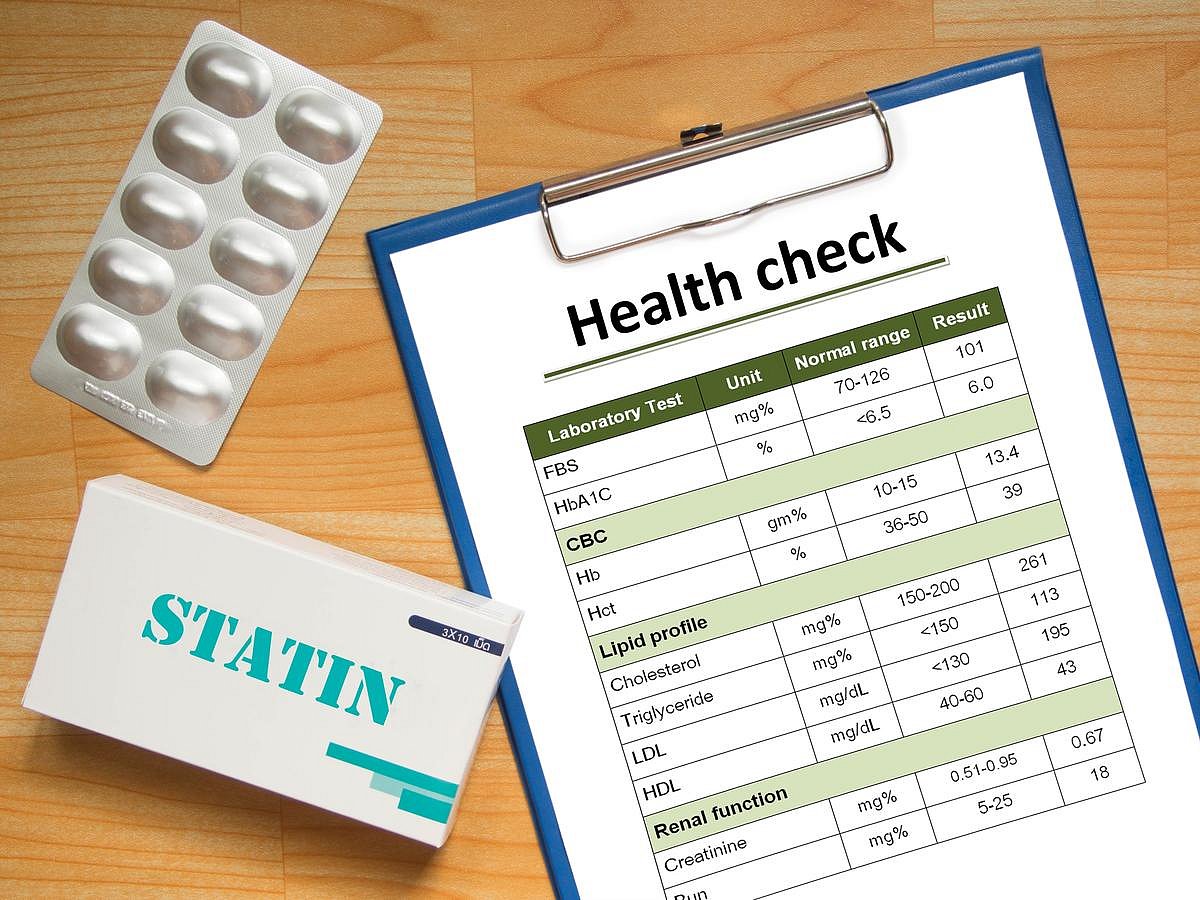Get Healthy!

- Dennis Thompson
- Posted July 2, 2025
Tens Of Thousands of Heart Attacks, Strokes Could Be Prevented With This Prescription
Tens of thousands of people suffer needless heart attacks and strokes every year because they aren’t taking cholesterol-lowering drugs, a new study says.
More than 39,000 deaths, nearly 100,000 non-fatal heart attacks and up to 65,000 strokes in the U.S. could be prevented if people eligible for statins and other cholesterol-lowering drugs were taking them, researchers reported June 30 in the Journal of General Internal Medicine.
Nearly half of Americans (47%) who’ve never had a heart attack or stroke are eligible to take statins under U.S. guidelines, researchers found.
But fewer than a quarter (23%) of them have been prescribed the life-saving drugs, results show.
A substantial number of heart attack or stroke survivors also aren’t taking the drugs, even though all are eligible for them under U.S. guidelines, researchers said.
“These results add to a growing body of evidence that there are important shortcomings in the quality of care for common and costly chronic diseases such as high cholesterol, and that addressing those shortcomings would yield major public health benefits,” lead researcher Dr. Caleb Alexander, a professor of epidemiology at the Johns Hopkins Bloomberg School of Public Health, said in a news release.
For the study, researchers analyzed data from nearly 5,000 U.S. adults between 40 and 75 years of age who took part in an annual U.S. Centers for Disease Control and Prevention (CDC) health survey between 2013 and 2020.
The survey included data on the people’s “bad” LDL cholesterol levels and their overall heart health risk profile. Researchers used that info to determine whether they’d be eligible to take cholesterol-lowering drugs under current guidelines.
Even people who had suffered a prior heart attack and stroke — and thus are at higher risk for a follow-up event — aren’t always prescribed statins, researchers found.
Only about two-thirds (68%) are taking statins, even though all are eligible for the drugs under the guidelines, results show.
Along with warding off heart attacks and strokes, properly prescribed statins also could prevent every year nearly 88,000 heart bypass surgeries and procedures to reopen blocked or clogged arteries, researchers estimated.
If everyone eligible for statins took them, researchers estimate that average LDL cholesterol levels would drop sharply and the risk of heart attack or stroke would fall by up to 27%.
Preventing heart attacks and strokes through cholesterol-lowering drugs also could save more than $30 billion in annual medical costs for the U.S., researchers estimate.
“Several factors account for the gaps that we document,” Alexander said. “They include differences in clinician training, patient preferences, barriers to accessing care, financial incentives that don’t always support best practices, and the difficulty of putting clinical guidelines into practice in busy, real-world settings.”
Better patient education and improved screening methods could make sure the right people are taking the statins they need, researchers said.
“High cholesterol is an important chronic health condition that silently claims far too many lives —there are millions of people walking around with this condition that don't even know they have it, and then when it is recognized it too often goes undertreated,” senior author Dr. Seth Martin, a professor of cardiology at the Johns Hopkins University School of Medicine, said in a news release.
“Evidence-based action is critical to close the gap and prevent devastating cardiovascular events,” he said.
More information
Harvard Medical School has more on statins.
SOURCE: Johns Hopkins Bloomberg School of Public Health, news release, June 30, 2025







